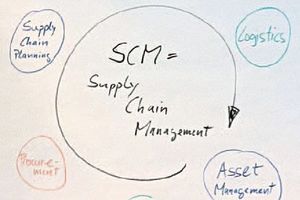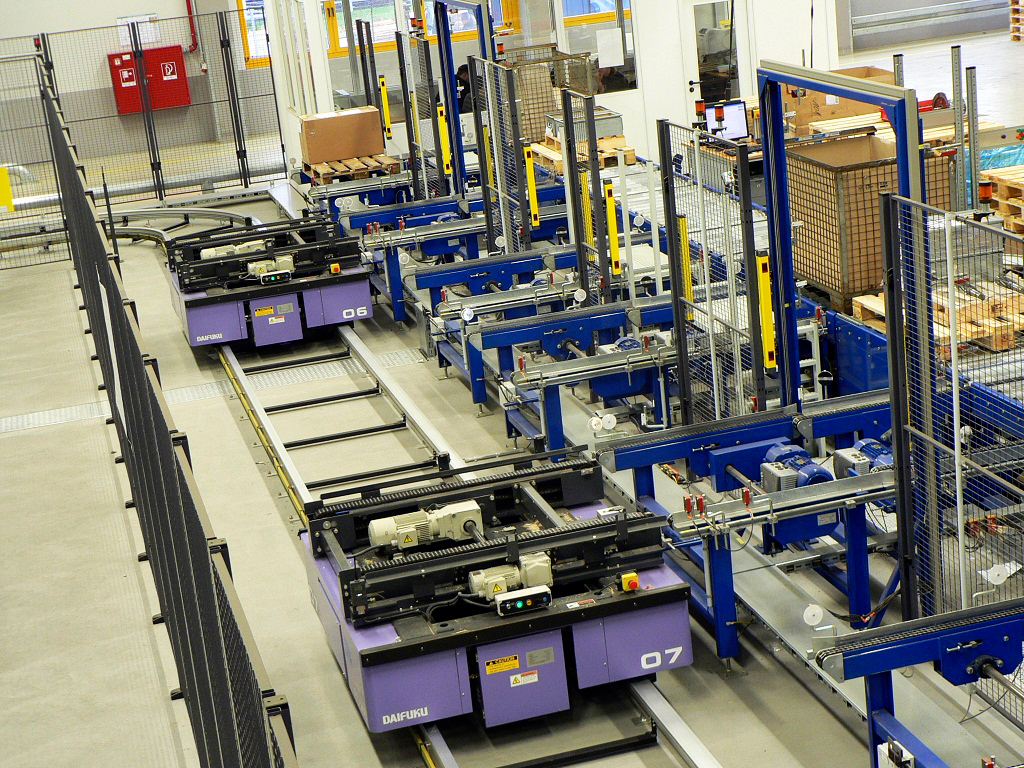Supply chain management as a success factor
The future of machine and plant engineering will be determined by the efficiency of supply chain management (SCM). In the long-term, companies will only be successful if they can effectively forecast their component requirements or their production planning even under uncertain conditions, and develop solutions along the entire supply and value creation chain from the delivery of primary products right up to the final consumer.
On the mechanical engineering sector, supply chain management is generally more complex than it is in other industrial sectors. One reason for this is the widely adhered to “Engineer to Order” principle, under which the products are not designed and manufactured until a customer's order has been received and are then produced on a custom-tailored basis. These orders usually involve limited-lot production with the manufacturing of small quantities distributed over long periods of time. Against this background, it is important to have an effective supply chain management that is significantly different from that applied for large-volume production.
Siemens AG and especially their Industry Sector has long dealt intensively with the topic. Taking the company Salzgitter Maschinenbau AG as his example, Dr. René Graf, automation specialist at Siemens in Erlangen, explained the “Engineer to Order principle” with supply chain management. “In order to achieve efficient management of its supply chain, the company categorized its products in accordance with various criteria into so-called similarity types,” Graf says. To enable categorization of the products, a number of aspects were recorded, including product type, manufacturing process and processing times. On the basis of the known peculiarities of the concerned machines and plants, conclusions were then drawn with regard to the production process. “As a consequence, it is possible to forecast the quantities of individual components that have to be ordered or manufactured in-house, and to decide on the appropriate production logistics”.
The conditions of global competition, changing customer expectations and shorter product lifecycles are forcing companies to continuously develop new products that are precisely tailored to their customers' requirements. As a result, a large number of product variants are created and the value creation chains become more and more complex. “This in turn means that the production and logistics processes become more and more difficult to control”, Graf continues. The product itself is not necessarily a decisive cause of this high degree of complexity; its external environment may be more significant. A single product may be governed by totally different regulations and requirements in different countries. “The development of new products or adaptation of existing ones is often a consequence of the different manufacturing and test certification regulations, different documentation requirements or even different customs laws existing in individual countries”, Graf explains finally.
Also, universities and other research institutions are dealing with the topic of SCM. Against this background, Prof. Dr. Jörg Dalhöfer of the Lübeck University of Applied Sciences explains the “Design for Value Chain” model. This follows the approach of early incorporation of information about the external environment of a product during its development phase instead of during the later manufacturing phase, or even after production has taken place. “This is the most uncomplicated way to adapt products to customer requirements and the specific regulations of different countries”, Dalhöfer says. This model was developed on the basis of information from the industry and data from complexity analyses published in workbooks and manuals, as well as in checklists. With the aid of these materials, companies will obtain considerably greater planning security for their logistics processes and value creation chains. The time involvement and the estimated costs arising from import regulations, documentation requirements, certifications or later modifications will thus become apparent at an early stage, permitting realistic time and cost estimates.
“In the selection of their manufacturing processes, companies have to carefully consider various factors, because the different conditions of workshop production, batch production, line production and flow production all have different effects on the manufacturing cycle”, Dalhöfer contiues. Lean, efficient and operational-requirement-oriented manufacturing processes also demand perfectly coordinated production logistics. By redesigning their production processes and associated logistics, companies can achieve positive effects that are economically rewarding.
“Industry 4.0 will be one of the important topics for the future of the mechanical engineering sector. Rigid production structures will give way to autonomous and self-organizing production units. This development will require intelligent products and value-generating networks, which – unlike rigid value creation chains – will be able to react quickly and flexibly to market demands”, it says in conclusion from Lubeck. The so-called “4th Industrial Revolution” will generate an efficiency boost in intralogistics and production logistics. The situation at SEW-Eurodrive is a good example for how the production and logistics processes can benefit. This mechanical engineering company has implemented a new gearbox assembly system which is supplied with material by logistics robots. The achieved results have fulfilled the expectations of a 20 % improvement in productivity and a 50 % reduction in total processing time.







